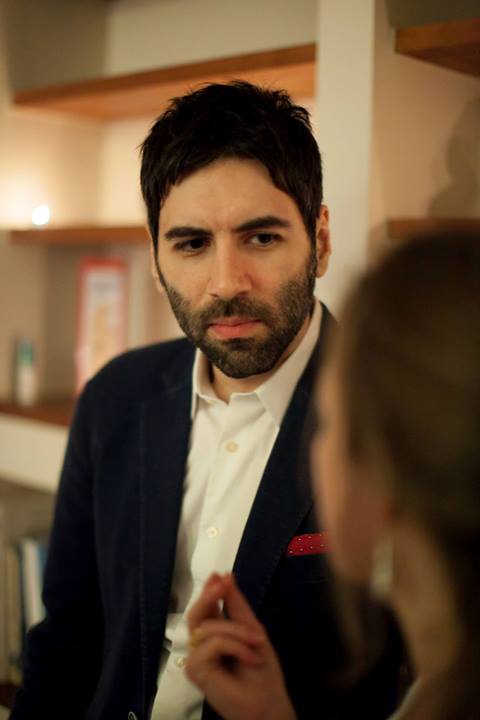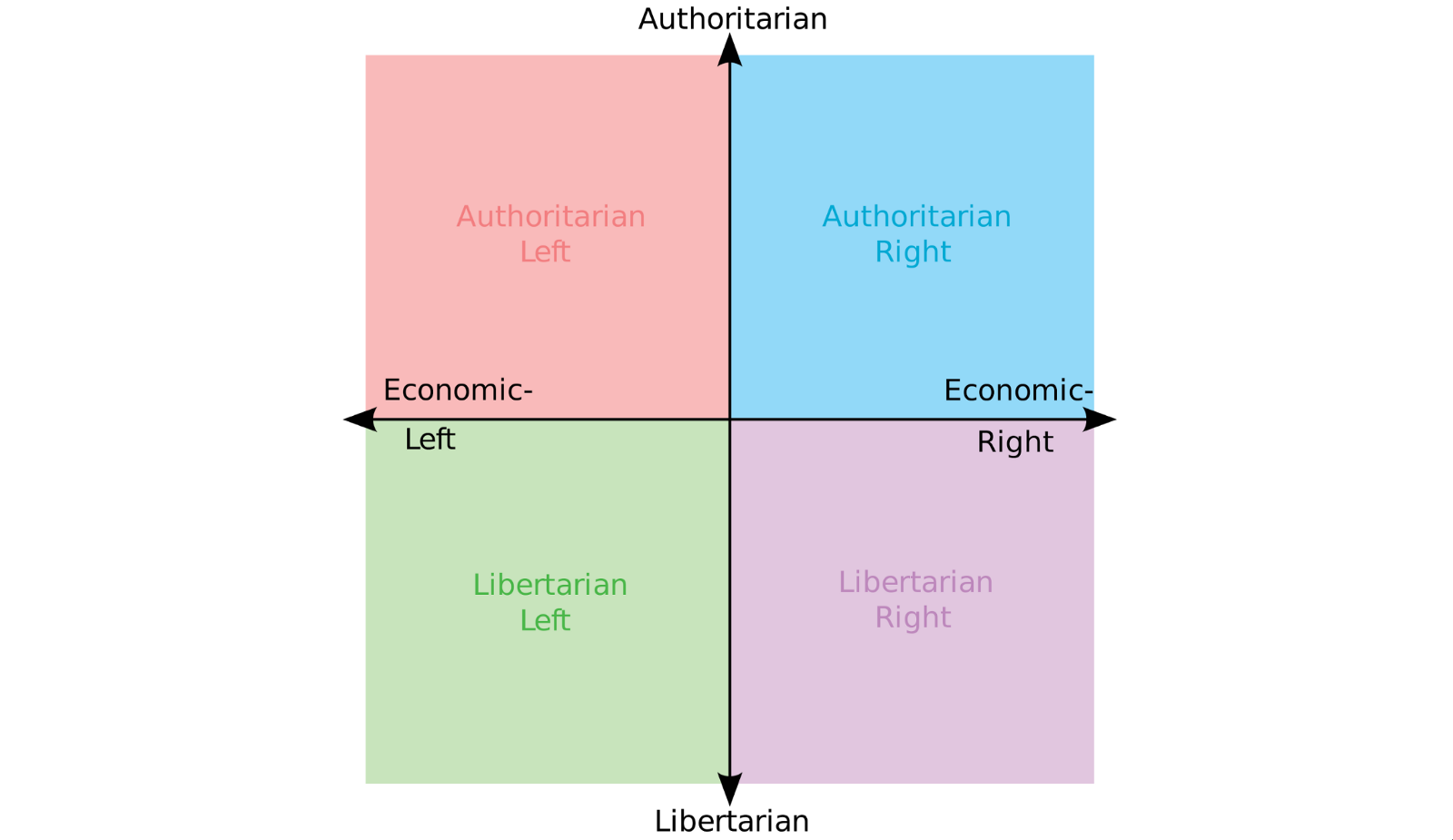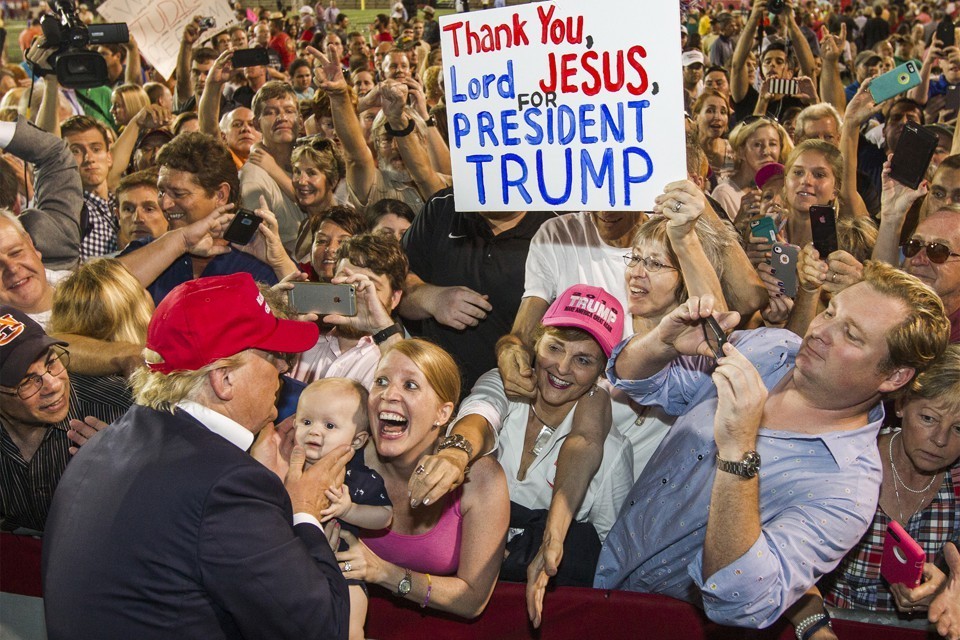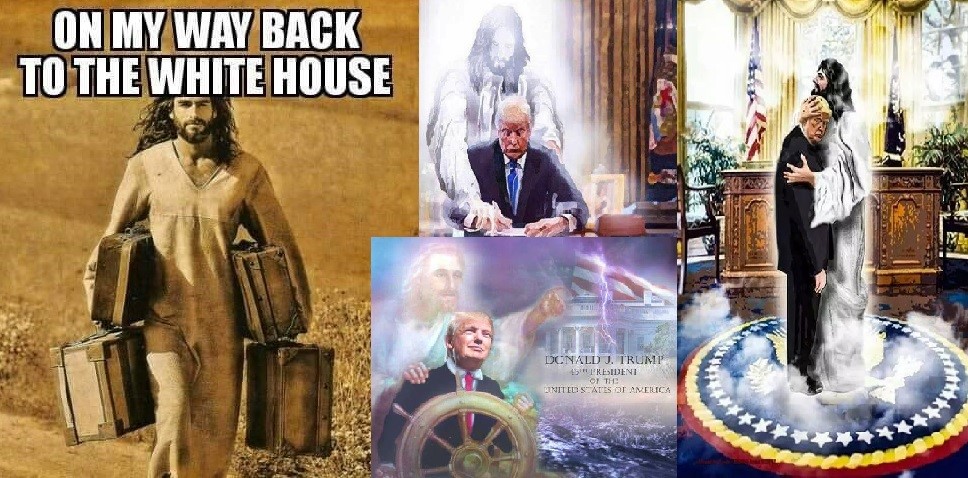
It has been awhile since I’ve written a play-by-play rebuttal or rejoinder to someone else’s blog post. A friend sent me this article—
Conservatives are Losers—by
Roosh V, the other day and asked what I thought of it. He suggested a lot of Millennials may share V’s views in that they are averse to conservatism on the basis it’s a “losing team”. I suspect he’s right.
Roosh V is an author and blogger who frequently
writes tips for men on “picking up girls and getting laid”. Though V’s blog is not explicitly political, his macho/masculinity ideological system—which he calls
neomasculinity—tends to butt up against political discussions as it offers a competing worldview.
At the risk of oversimplifying things, V’s neomasculinity might be said to be “conservative” to the extent
it opposes socialism, feminism, cultural Marxism, and social justice warriorism because they aim to destroy the family unit, decrease fertility rates, and impoverish the state through large welfare entitlements. However, neomasculinity’s ideological system is opposed to traditional conservatism for reasons that will hopefully become clear in this rebuttal. I have included V’s words in red and my responses in black:
Conservatives are Losers
For the world to get to how it is today, with the nearly complete elimination of tradition in favor of a globohomo world where diddling little children is becoming normalized, conservatives have had to lose every meaningful cultural war in the history of man. When someone declares themselves a conservative, they’re in fact stating that they are a loser, someone who is meant to take the fall when the left comes attacking.
While I agree the conservative movement has suffered heavy losses in the war for the American soul, I don’t think it’s fair to attribute all—or even the majority—of those losses to attacks from the Left.
As I wrote here, much of the breakdown of the institutions of church, family, state, and other traditional structures can be attributed to the loss of function in our daily lives, and not the direct result of well-orchestrated plots by Leftists to destroy Western institutions. In other words, much of that loss would have happened whether or not conservatives actively fought back against the Left in a manner that was satisfactory to V.
Conservatives have lost on every battlefront: free speech, the military, the universities, marriage, nuclear family, child education, the media, the government, Boy Scouts, business, law and justice, Christianity, patriarchy, immigration, the welfare state, and capitalism. The right to bear arms is the only battle they’re not losing in a rout, but I’m confident they will lose that too within a decade’s time. Conservative institutions are being infiltrated and subverted, or have disappeared off the face of the earth, and there is no sign of them ever coming back.
I think it’s important to distinguish between policy and cultural losses. Arguably, Trump’s administration is the most “conservative” government we’ve had since Ronald Reagan. And—while I’ve frequently written about the multitude of ways in which this should not be perceived as conservatism “winning” in an ultimate sense—it isn’t exactly accurate to conclude we’ve lost the political fight either. On the cultural side, the notion that conservatives are “losing” hangs entirely on where we choose to draw our timeline.
As I argue here, cultural norms ebb and flow, and—while it is true that all civilizations eventually succumb to cultural entropy—it simply isn’t true that conservatism had its “high point” at the birth of our nation and has been slowly descending ever since. In fact, conservatism as a political phenomenon only emerged in the 1950s,
largely due to the efforts of Russell Kirk.
Why are conservatives such losers? Because they desire to merely hold the line while their enemy rushes at them full speed. They don’t want to conquer new lands, kill their enemy, or inflict real harm. They want to maintain the status quo while the left froths at the mouth to win, energized with momentum and passion. The left is so dissatisfied at the state of the world because of their deep-seated inner dysfunction that they put their entire being into trying to make it better. They don’t know how to enjoy their lives so they have to attack the lives of others.
I’d venture to guess V isn’t naturally predisposed to conservatism because his writing suggestions he’s uncomfortable with nuance and trade-offs. Conservatism is a worldview that dares to explore what words and concepts actually mean beyond their momentary emotional appeal. For instance, a conservative is less interested in advancing “liberty” as some vague, abstract concept than understanding what liberties can reasonably be preserved alongside a people’s culture and history. V seems to have a needlessly monolithic view of conservatism as those who simply hold the line.
On the one hand he’s correct: conservatism is the defense of traditional values and institutions, so it makes sense that they merely hold the line. But holding the line and fighting for a return to some lost value system or the rebuilding of a faltering institution aren’t inherently in conflict with one another. If V’s contention is that some conservatives aren’t adequately concerned about the state of Western civilization, then he has no quarrel with me. But I take issue with the notion efforts at conservation is inherently bent towards losing.
Conservatives, on the other hand, have no momentum or passion. They just want to be left alone, which makes them easy pickings for a collective that is hellbent on achieving their nightmare utopia. In the end, conservatives are the Spartans in 300 who have trained their entire lives to lose the battle, even if they are pound-for-pound stronger than their enemy.
Again, this is an oversimplification of the conservative worldview and—likely—is a better description of libertarianism. I don’t disagree that the deck is often stacked against conservatism in that the conservative worldview doesn’t immediately capture the momentum or passion of the average person the way utopian ideologies can. But that is like objecting to eating vegetables on the basis most people find sweets more pleasurable. The question isn’t which worldview is the most enticing (and, therefore, most likely to “win”), but which worldview is correct (and, therefore, worth fighting for).
Conservatives have also shown to be comically susceptible to leftist ideas when it’s presented as “human rights.” Two decades ago, the vast majority of conservatives would have stood against gay marriage, but a few years of cheesy “love is love” commercials was all it took for them to change their mind. Their motto of “live and let live” is only reasonable to hold if their enemy believed the same. They give the crying baby its bottle and from that milk it gets fat and strong and decides to kill the entire family. Conservatives don’t understand that giving an inch to the left eventually results in absolute defeat. They have to psychotically refuse to give any ground, even if practical logic or fairness is staring them in the face, but we know they won’t do that.
I believe V is half right here. Conservatives have conceded a great deal to the culture wars in recent generations. And certainly more could have been done. More can always be done. In some ultimate sense, conservatism is destined to “fail” if it’s viewed through the narrow lens—as V appears to prefer to view things—of measuring success by the ability to hold cultural norms and values identical from one generation to the next. In actuality, conservatives distinguish between deferring to cultural norms and customs and treating those norms and customs as if they are religiously sacred. Conservatism isn’t about holding everything at the status quo, but about recognizing the natural tension between the status quo and progression and preferring the former to the latter. As Russell Kirk so eloquently put it:
“The statesman should not struggle vainly to dam the whole stream of alteration, because then he would be opposing Providence; instead, his duty is to reconcile innovation and prescriptive truth, to lead the waters of novelty into the canals of custom. This accomplished, even though he may seem to himself to have failed, the conservative has executed his destined work in the great mysterious incorporation of the human race; and if he has not preserved intact the old ways he loved, still he has modified greatly the ugly aspect of the new ways.”
Another problem conservatives face is technology, which is not agnostic but rather liberating. It allows man to rely less on traditions, family, social bonds, and religion, all things that the left hates. The more technology you have, the more you can be an atomized unit in a little urbanized box, reliant only on your service job and digital device to keep you alive and somewhat sane while using Uber and Lyft to travel in and out of your self-imposed quarantine zone. Because of technology, the conservatism of today is merely the liberalism of twenty years ago. I challenge you to find a single attractive “conservative” girl who hasn’t tried Tinder or engaged in abundant pre-marital sex. Look at the life of any self-professed conservative and odds are you’ll find a rather cosmopolitan existence that is far removed from nature and rural living.
This is a fair point. And conservatives have long recognized that technological and scientific advancements have the potential to radically shift cultural norms and traditions. It may be that contraceptives have done more to devastate conservative institutions than all the efforts of the Left combined. But it doesn’t follow that all technology is destructive to conservative ends. A society can advance in technology while still maintaining institutions, and the challenge of each generation of conservatives has always been how to balance things of permanent value with the progression of history and the tools at our disposal.
To say that the conservatism of today is merely the liberalism of twenty years ago is ludicrous. But it’s hardly worth me rebutting his claim until he provides an actual argument, or at least defines what he means by “conservative” and “liberal” in this sense. Similarly, I don’t quite know how to answer his charge that attractive “conservative” girls are all promiscuously cosmopolitan. If his point is that conservative values don’t do as well in urban centers, then I agree. But if his point is that attractive females who call themselves conservative aren’t actually conservative, I fail to see what that has to do with conservatism?
The biggest reason why conservatives will continue to lose is that they’re still not ready to kill the left even though the left is ready to kill them. Liberals have been getting conservatives fired on a daily basis while suing their businesses out of existence while the conservative loser merely whines about it on Twitter. You may hate the left, but if you wouldn’t dare even punching them in the face because you fear losing your life of comfort, you will lose. If you’re not prepared to kill your enemy while your enemy is busy killing you, you will lose. It’s that simple. Some think that conservatives have to feel a sense of hopelessness to fight back, but by then there will be nothing left worth fighting for.
Since V appears to prefer the broadest definitions possible for nuanced worldviews, I have to ask—what the heck is he talking about? Every populist movement on the Right from the Tea Party to the alt right to the Trump phenomenon has levelled this exact charge at conservatism while still claiming to be “conservative”. Traditional conservatives such as myself—who recognize the entire worldview was built upon Edmund Burk’s objections to abstract political philosophies and radicalism—object to the notion we have to treat the Left as some kind of existential threat to be destroyed instead of persuaded, but I am well aware of the fact I am in the minority there.
V sounds like the very “conservative” groups he’s arguing against—and I seriously wonder whether he’s bothered to even listen to what they’ve been saying quite loudly and quite ferociously for quite a long time: that the only way to “win” is to punch back as hard or harder than the Left punches you. And, my criticisms of those groups are identical to my criticism of V’s stance here: what exactly are you advocating? The idea that conservatives aren’t doing enough is always presented as a moving target. Do we need to lie? Burn buildings? Threaten warfare?
You don’t have to be a historian to know that conservatives will continue to lose. Simple take a look back 50, 100, or 500 years to see how much ground they’ve lost, and amplify that by a factor of ten thanks to technology if you want to imagine how much ground they will lose in the next 50, 100, or 500 years. They are such losers that if you see any sort of organized conservative “uprising” in the years to come, it will surely be a carefully managed scheme by the elites to usher in yet another monumental conservative defeat, just like we saw in the last few years with the alt right’s astonishing rise and then disastrous defeat in Charlottesville at the hands of their more capable enemies.
You don’t have to be a historian to know how absurd V’s statement is either. But knowing history would help. The conservative movement—as we know it today—began in the 1950s and accelerated in the 1980s. Conservative impulses of various shapes and sizes have waxed and waned throughout Western civilization since the time of the ancient Greeks and the Roman Republic. A lot of V’s argument depends on how broadly he’s defining conservatism and how narrowly he’s viewing history.
I’m also uncertain how the rise and fall of the alt right in recent years signals a moratorium on the conservative movement? Does V mean that the alt right represents a sort of ultra-conservatism and that its demise indicates a sort of domino-effect for the political Right? Happily, the fall of the alt right is a victory for conservatism as the term “alt right” literally means an alternative to conservatism. That’s like saying the defeat of Nazis Germany signaled the end of the conservative era.
Since I know conservatives will not win, I do not identify as one, because I don’t see myself as a loser. I will stay under the radar and live with no label, and let the communists on the left defeat the losers on the right like they have been doing for centuries.
It isn’t necessary to reduce reality into the populist lens of winners and losers. Were the Christian martyrs
killed by Romans in the colosseum losers? Were the Jews who died fighting the Nazis in the
Warsaw Ghetto Uprising losers? History is replete with cases of those who fought knowing the most likely outcome was defeat or even death. Were they all losers?
If V is demanding some assurance, there are no sure bets in this life. And sometimes the “winning side” can very much appear the loser in this present moment. Christianity is alive and well, unlike the Roman Empire that persecuted Christians. And though six million Jews were murdered in the Holocaust,
the Jewish people are disproportionately successful today, while their murderers and those who support them are a pathetic group of stragglers unable to gain any political clout.
The question isn’t who’s “winning”, but what is right, honorable, and worth fighting for. The real losers are those who demand some calculated assurance before deciding what’s worth living or even dying for.
In Conclusion
To the extent V is channeling the spirit of the age and rightly criticizing the cultural setbacks that have taken place, I think there is some value in what he has to say. I don’t want to dismiss his arguments but engage them. Conservatives have good reason to be discouraged. But discouragement is not a good reason for abandoning one’s worldview.
Aside from the concerns I’ve addressed above, I’m not entirely certain what V is advocating? He doesn’t seem to be saying the things conservatives are defending aren’t worth defending. He seems to be taking issue with the fact they are presumably losing the fight. Very well then, what of it? If he’s saying the fight isn’t worth it, then what difference does it make if we win or lose? If he’s saying the tactics conservatives use are inadequate, then what tactics does he recommend? What would he do differently aside from refusing to adopt a label for fear it would brand him as a loser?
It is true that many today would rightly reject conservatism on the basis it doesn’t appeal to their natural desire to “win”. Authentic conservatism isn’t natural. It calls us beyond our natural biological appetites to a
higher order. Neomasculinity is appealing in that it seeks to indulge in our natural appetites, but that is not the same as bypassing Loserville. Conservatism isn’t a worldview for losers. It’s a worldview for those with the maturity and bravery to fight for the things that matter most.






